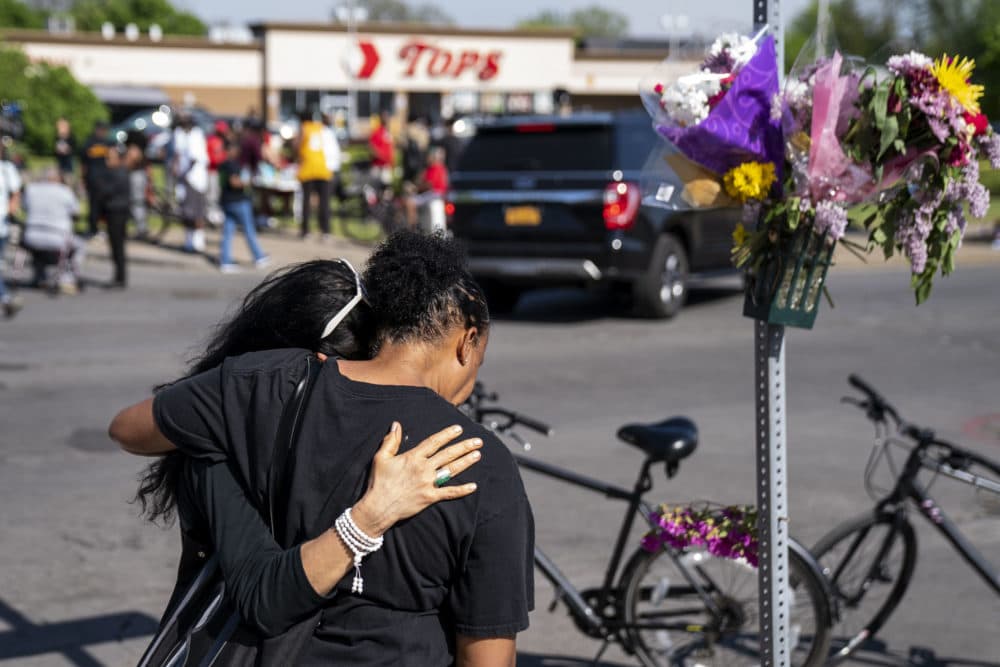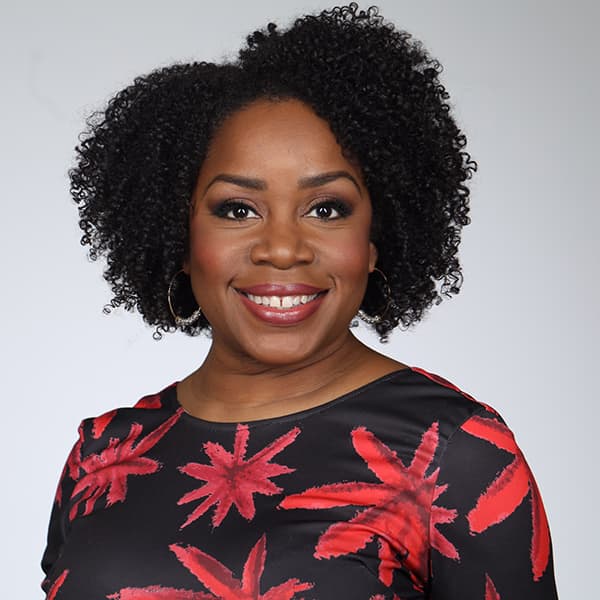Advertisement
'Great replacement theory' and its deep roots in America
Resume
In a recent survey, one in three Americans said they believe immigrants are being brought to the country for political gain.
This so-called “great replacement theory” holds that an effort is underway to intentionally replace native born Americans. It’s been perpetuated recently by right-wing media. But it’s nothing new.
"These arguments have been made since before the Constitution was signed, and they're made for the same purpose today that they were then, to maintain the status quo in power," Jeffery Robinson says.
Today, On Point: Great replacement theory and the history of our nation.
Guests
Jeffery Robinson, founder and president of the Who We Are Project, which aims to correct the narrative on the history of anti-Black racism in the United States. Producer of the documentary Who We Are: A Chronicle of Racism in America. (@jeff_robinson56)
Ricky Jones, professor and chair of the department of Pan-African studies at the University of Louisville. (@DrRickyLJones)
Also Featured
Aliza Luft, assistant sociology professor at UCLA. Author of Dehumanization and the Normalization of Violence. (@alizaluft)
Interview Highlights
On America’s founding and the institution of slavery
Jeffery Robinson: “It is humorous to suggest that somebody in 2011 came up with this. I'm just going to read you something really quickly: 'Civilization is going to pieces. I've gotten to be a terrible pessimist about things. The idea is if we don't look out, the white race will be utterly submerged. It's all scientific stuff. It's been proved. It's up to us who are the dominant race to watch out, or these other races will have control of things.'
"That's from the first chapter of the book The Great Gatsby in 1925, which was the year after the Johnson-Reed Act, which based immigration in this country on national origin. So this is nothing new. And if you go back to colonial America, not just constitutional America, the importation of enslaved people from Africa was a huge part of our country. The ships that we sent were named Desire, Fortune, Hope and Prosperity. The first four American made ships sent to Africa to go get more enslaved people.
"We were passing laws in colonial America that said, If an enslaved woman has a child, that child is an enslaved person. And that law was required. Because white men would rape Black women. And it wasn't a crime. But not only was it not a crime when those children were born, the law wanted to make clear, don't go thinking blue eyes or freckles makes that a human being, that is an enslaved being.
"Virginia passed more than 130, quote-unquote, 'slave statutes.' And I'll end by saying this. 1619, we have reports of 20 and odd people being brought to America. There were enslaved people here before that. But the numbers we're understanding are just beginning. By 1790, that number was 700,000.”
On institutional racism and the ideology of ‘great replacement theory’
Ricky Jones: “It is very difficult — or I would say impossible for us to have this discussion without understanding the ideological underpinnings of what America is really about racially. And I always try to start the discourse with people understanding what white supremacy really is and institutional racism, what these things really are. And when I talk about white supremacy, I'm not talking about some cartoonish understanding of it. Of, you know, people in Charlottesville chanting, You will not replace us. Or Dylann Roof, or the Ku Klux Klan burning crosses on people's yards.
"But the ideological premise of a percentage of our white brothers and sisters in the country that stretch back to the founding of the country, that because of their race, they are the people who have the right to think, know and decide. And so when you go back to the Alien and Sedition Acts of 1798, to Plessy v. Ferguson or before that, to the Hayes Tilden compromise, which hopefully we'll talk about later. To Dred Scott, you see all of these movements to ensure white dominance in the country. It's become more sophisticated over time as it's morphed, but it's always present. And so I think that it's important that we have sophisticated discussions about this type of sophisticated, hegemonic dynamic.”
On fear as an underlying basis of ‘great replacement theory’
Ricky Jones: “Many of our white citizens in America feel that the country was founded by them and for them, and they are simply not willing to give it up. So there is a through line that we see. Whenever you see the scales even tilt and not balance, but tilting towards balance, that there is pushback. So it's essential that we continue to contextualize this historically as we talked about reconstruction.
"But look at how reconstruction ends with the election of 1876, where you have Samuel J. Tilden on the Democratic side and Rutherford B. Hayes on the Republican side. And you have contested electoral votes in states like Louisiana, South Carolina and Florida. Florida never seems to be able to get it right. But the only thing keeping the South in line during this time is the presence of federal troops in the south. And the Democrats make a deal. They say, look, we'll give Hayes the presidency if you remove federal troops from the south.
"And you would think that the Republicans wouldn't do that because the troops are the only thing that are keeping whites at that time from being openly, brazenly violent towards Black people. But they make the deal for the political power. And you get a nadir period of white violence towards Blacks. You get grandfather clauses, you get literacy tests, you get intimidations, you get outright violence towards Black people.
"So political power is related to the social power of white supremacy in the country, and that continues. It's very difficult for us to think even today in the 21st century, as we talk so much about diversity, equity and inclusion, it's difficult to cite any social, especially political and professional spaces where blacks are the terminal decision makers.
"We are still witnessing a more sophisticated brand of white supremacy and control as we look throughout the country, and people are loathe to give that up. So there is that fear, right? And there is that privilege. There is that feeling that there's a God given right to, again, think, know and decide about everything of consequence in the country.”
On the long history of racism in America
Jeffery Robinson: “George Orwell said it most ominously, Who controls the past, controls the future. There is a reason that people don't want to know the truth about our past, because it gives an explanation for why America looks like it does today, that is radically different than the explanation that many people want to latch on to. And so what I see happening, you know, just very quickly, the concept that language doesn't matter.
"I remember Hillary Clinton talking about predators who were 13 and 14 years old. ... And what I do is go back through history. Any time you see government officials start to talk about people in less than human terms, get ready for the less than human treatment. And the explosion in mass incarceration came on the heels of that kind of rhetoric that came from Democrats and Republicans.
"So I don't agree that words don't matter. I think that words matter. And I think that history matters. America is a great nation, and it is also a racist nation. And those two things can't coexist together forever. And it seems to me that we are literally at a tipping point where we're deciding which way America is going to go. And anyone who looks around the country at the condition that we're in can't avoid that conclusion. So if you are interested in which way America is going to go, it is time to look in the mirror and ask yourself what you're doing about it.”
Is there a solution to stop the perpetuation of this ideology, or are we doomed to fall on the wrong side of that tipping point?
Ricky Jones: “I don't know. You know, I'm certainly less hopeful than I have been. What I do know is this is a country that was founded by men who said all men are created equal, while they simultaneously, a good percentage of them, held slaves. And America is yet to, you know, figure out that contradiction. And we are still living with it. So I don't know exactly where we go from here.
"I have no magic bullet. I wish I was, you know, Harry Potter with a wand who could wave it and figure this out. But I don't know if we've gotten to the point where we're ready to figure it out. We like to talk about it, but I'm not sure if we're really ready to act on multiple levels to figure this out. So I'm not very hopeful right now that we're going to get off the road that we've been on since the founding of the country.”
This program aired on May 23, 2022.

